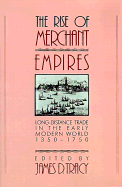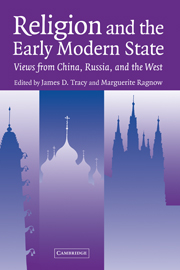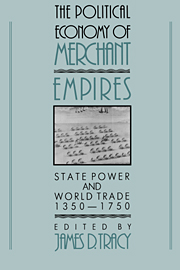3 results in Studies in Comparative Early Modern History

The Rise of Merchant Empires
- Long Distance Trade in the Early Modern World 1350–1750
-
- Published online:
- 01 June 2011
- Print publication:
- 27 April 1990

Religion and the Early Modern State
- Views from China, Russia, and the West
-
- Published online:
- 23 May 2010
- Print publication:
- 25 October 2004

The Political Economy of Merchant Empires
- State Power and World Trade, 1350–1750
-
- Published online:
- 25 March 2010
- Print publication:
- 25 October 1991

